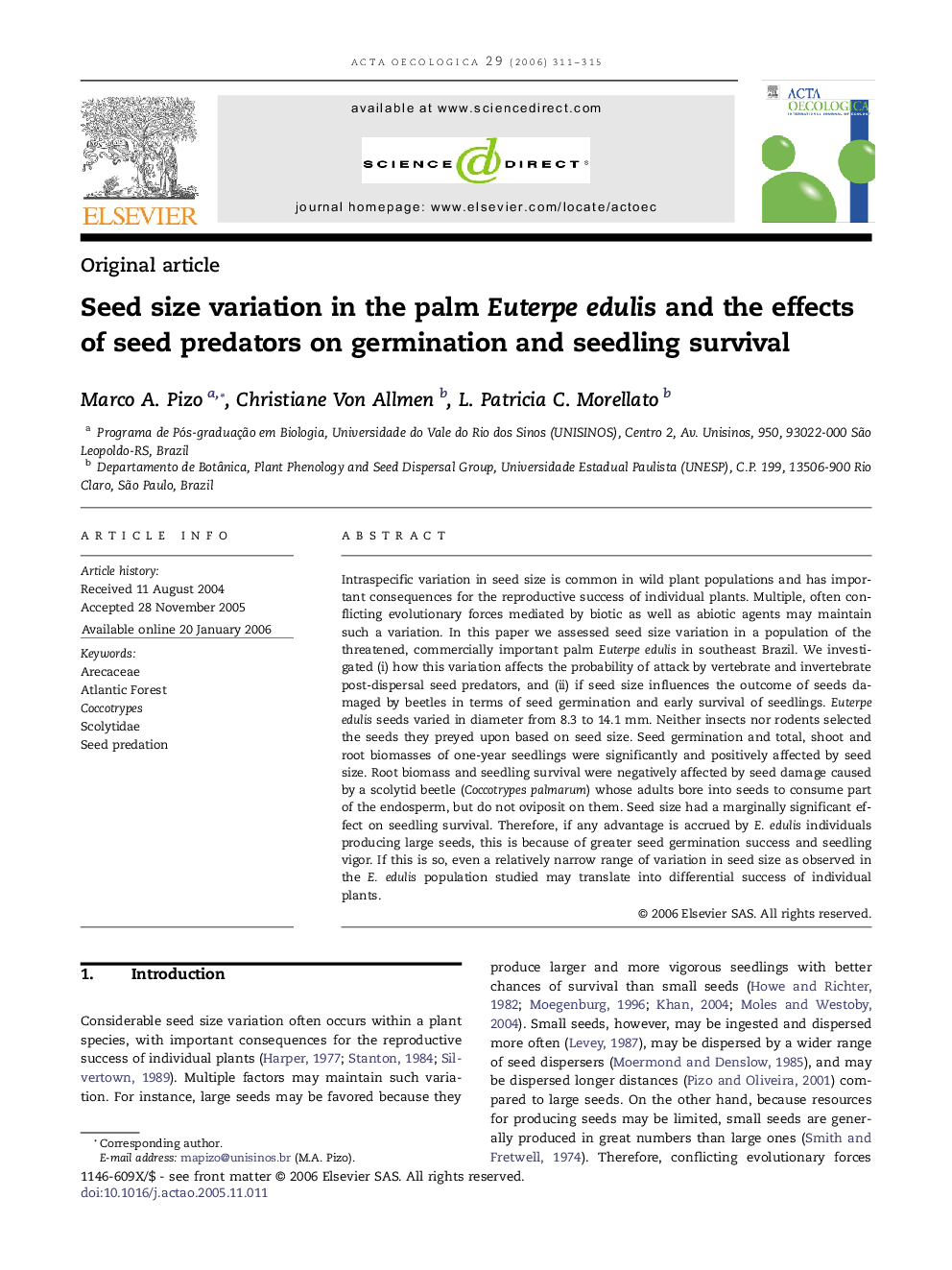| Article ID | Journal | Published Year | Pages | File Type |
|---|---|---|---|---|
| 4381753 | Acta Oecologica | 2006 | 5 Pages |
Intraspecific variation in seed size is common in wild plant populations and has important consequences for the reproductive success of individual plants. Multiple, often conflicting evolutionary forces mediated by biotic as well as abiotic agents may maintain such a variation. In this paper we assessed seed size variation in a population of the threatened, commercially important palm Euterpe edulis in southeast Brazil. We investigated (i) how this variation affects the probability of attack by vertebrate and invertebrate post-dispersal seed predators, and (ii) if seed size influences the outcome of seeds damaged by beetles in terms of seed germination and early survival of seedlings. Euterpe edulis seeds varied in diameter from 8.3 to 14.1 mm. Neither insects nor rodents selected the seeds they preyed upon based on seed size. Seed germination and total, shoot and root biomasses of one-year seedlings were significantly and positively affected by seed size. Root biomass and seedling survival were negatively affected by seed damage caused by a scolytid beetle (Coccotrypes palmarum) whose adults bore into seeds to consume part of the endosperm, but do not oviposit on them. Seed size had a marginally significant effect on seedling survival. Therefore, if any advantage is accrued by E. edulis individuals producing large seeds, this is because of greater seed germination success and seedling vigor. If this is so, even a relatively narrow range of variation in seed size as observed in the E. edulis population studied may translate into differential success of individual plants.
